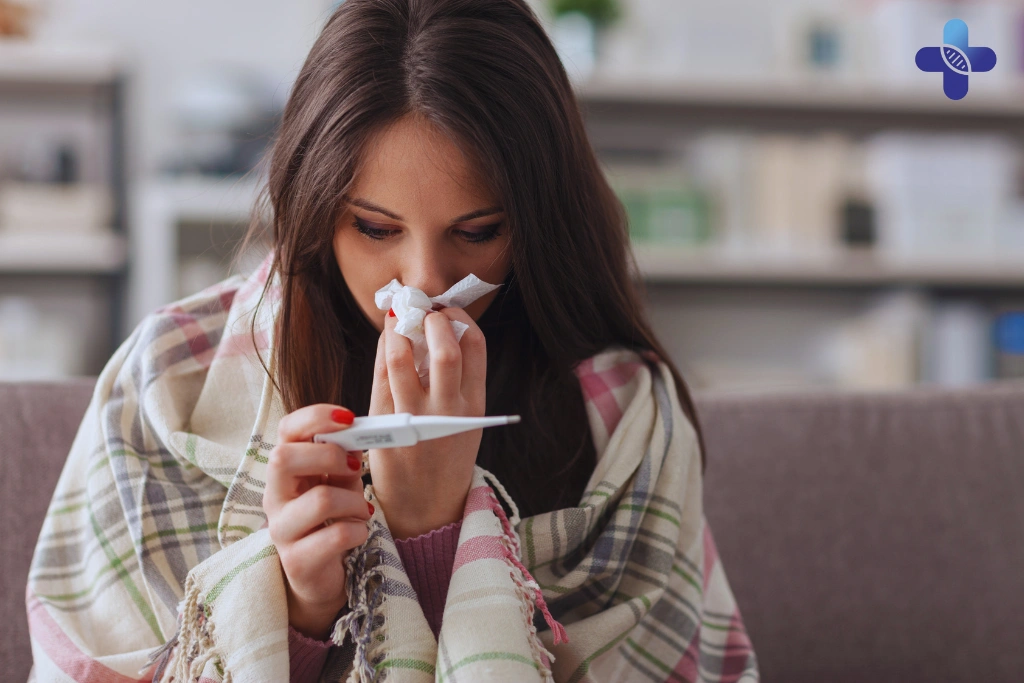Many travelers come to Bali expecting only sunshine and relaxation, but some common viral illnesses in Bali are often overlooked until symptoms become serious. Mild fever, joint pain, or fatigue can easily be mistaken for travel exhaustion, yet they may signal infections like dengue, chikungunya, or seasonal flu. At Life Everyouth Bali, our Bali Medical Clinic team follows WHO and Kemenkes guidelines to help visitors recognize these signs early and seek prompt treatment. By understanding the risks and acting quickly, you can protect your health and make the most of your Bali experience.
Common Viral Illnesses Travelers Overlook in Bali

Many travelers arrive in Bali ready to enjoy its beaches, culture, and vibrant nightlife, but few are aware of the common viral illnesses in Bali that can disrupt their trip. Symptoms like mild fever, muscle aches, or joint pain are often dismissed as simple travel fatigue, yet they could be early warnings of more serious infections such as dengue fever, chikungunya, or seasonal flu. At Life Everyouth Bali, our Bali Medical Clinic follows WHO and Kemenkes guidelines to help visitors detect these illnesses early, ensuring timely treatment and faster recovery.
Overlooking these signs can lead to worsened symptoms and unnecessary complications, especially in a tropical climate where viral infections can progress quickly. With proper awareness, travelers can seek medical attention promptly and prevent their holiday from being cut short. Whether you’re staying in bustling tourist hubs or exploring remote areas, knowing the risks of viral infections and how to respond is essential for a safe and healthy Bali experience.
The Most Overlooked Viral Illnesses in Bali

While many travelers expect to face only minor health inconveniences in Bali, several common viral illnesses in Bali can escalate quickly if ignored. The tropical climate, high mosquito activity, and busy travel schedules make it easy to mistake early warning signs for something less serious. At Life Everyouth Bali, our Bali Medical Clinic has treated numerous cases where tourists delayed seeking help, only to face longer recovery times. Recognizing the symptoms of these illnesses is the first step toward protecting your health during your trip.
By understanding how these diseases manifest, you can take proactive steps and avoid unnecessary health risks. Some conditions, such as dengue fever and chikungunya, are mosquito-borne, while others like seasonal flu spread through person-to-person contact. All can affect your energy, comfort, and safety while traveling. Here are the most common viral infections that travelers often overlook in Bali and why early intervention is essential.
Dengue Fever – Often Mistaken for Common Flu
Dengue fever is one of the most frequent viral infections in Bali, yet its early symptoms—fever, headaches, muscle aches, and fatigue—can be almost identical to the seasonal flu. This similarity often leads travelers to underestimate the illness and delay visiting a medical clinic. At Life Everyouth Bali, our Bali Medical Clinic uses rapid testing to differentiate dengue from other infections, which is crucial since untreated dengue can lead to severe complications such as plasma leakage and shock syndrome.
What makes dengue particularly dangerous is how quickly it can progress within a few days. Without timely diagnosis and supportive treatment, recovery can be prolonged, and in rare cases, life-threatening. Following WHO and Kemenkes guidelines, our team provides comprehensive care, including hydration and immune support, to help patients recover faster and avoid complications that could cut their holiday short.
Chikungunya – Severe Joint Pain Ignored Until Too Late
Chikungunya is another mosquito-borne viral illness that tourists in Bali often dismiss, particularly because its hallmark symptom—intense joint pain—can be mistaken for post-travel muscle fatigue. Alongside fever and rash, this pain can linger for weeks, severely impacting mobility and enjoyment of daily activities. At Life Everyouth Bali, our Bali Medical Clinic emphasizes the importance of early evaluation to rule out chikungunya and start symptom management promptly.
Although chikungunya is rarely fatal, the long-term discomfort it causes can disrupt work, travel, and physical activity. WHO and Kemenkes both stress the importance of rest, hydration, and proper medical monitoring to prevent prolonged joint issues. Our clinic offers supportive treatments, including hydration therapy, that aid recovery and help restore energy levels more quickly.
Seasonal Flu in Tropical Climate
Seasonal flu might sound familiar to travelers, but in Bali’s humid tropical climate, it can feel more intense and take longer to resolve. High humidity and constant exposure to temperature changes—from air-conditioned rooms to hot outdoor environments—can weaken the immune system and make symptoms worse. At Life Everyouth Bali, our Bali Medical Clinic frequently treats travelers who underestimated the flu, only to experience dehydration and extended fatigue.
Ignoring flu symptoms in this environment can also increase the risk of secondary infections, particularly for those with pre-existing conditions. Following WHO and Kemenkes recommendations, we provide supportive care that includes rest, nutrition, and hydration to speed recovery. By addressing the illness early, you can minimize disruption to your trip and return to enjoying your Bali experience sooner.
Why Travelers Often Underestimate These Illnesses

Many visitors to Bali arrive with the mindset that minor discomforts are just part of travel and will resolve on their own. This assumption can be risky, as common viral illnesses in Bali can progress faster than expected in a tropical environment. At Life Everyouth Bali, our Bali Medical Clinic has seen cases where a short delay in seeking medical care turned a manageable condition into one requiring days of rest and intensive treatment. Recognizing that “waiting it out” isn’t always the safest choice is key to protecting your health.
One reason illnesses are underestimated is the busy pace of travel—packed itineraries, social activities, and the desire not to “miss out” can make tourists ignore early symptoms. WHO and Kemenkes emphasize that timely medical evaluation is crucial, especially for conditions like dengue and chikungunya that can worsen quickly. By taking a short break to get checked at a reliable clinic, travelers can avoid longer downtime and safeguard their trip.
Misinterpreting Symptoms as Travel Fatigue
After long flights, changes in diet, and days filled with exploration, it’s easy to blame mild fever, aches, or tiredness on travel fatigue. While sometimes this is true, in Bali’s tropical setting these signs can also indicate an early-stage viral infection. At Life Everyouth Bali, our Bali Medical Clinic encourages visitors to err on the side of caution and seek a check-up if symptoms persist beyond 24 hours. Early detection not only improves recovery outcomes but also reduces the risk of complications.
Travel fatigue typically improves with rest and hydration, but viral illnesses like dengue and chikungunya do not resolve without proper supportive care. WHO and Kemenkes guidelines recommend monitoring symptoms closely, especially if accompanied by rash, persistent fever, or worsening pain. Acting early can make the difference between a minor disruption and a complete halt to your travel plans.
Delayed Medical Response
A common mistake travelers make is waiting too long to visit a medical clinic, often because they hope the symptoms will pass or they don’t want to interrupt their itinerary. Unfortunately, in the case of common viral illnesses in Bali, delays can lead to more severe symptoms and prolonged recovery. At Life Everyouth Bali, our Bali Medical Clinic has treated numerous cases where timely intervention could have prevented days of discomfort.
The challenge is that viral infections in tropical climates can progress more aggressively than in temperate environments. WHO and Kemenkes recommend that any fever lasting more than 48 hours, or accompanied by significant pain, should be evaluated by a healthcare professional. By seeking prompt care, you increase the chances of a quick recovery and minimize the impact on your trip.
Fast Recovery Options for Viral Illnesses
Recovering from common viral illnesses in Bali doesn’t have to mean spending your entire trip in bed. With the right care, you can restore energy, reduce symptoms, and get back to exploring the island sooner. At Life Everyouth Bali, our Bali Medical Clinic follows WHO and Kemenkes protocols to provide effective recovery solutions tailored for travelers. The key is to act early, ensuring treatment begins before the illness has time to progress.
Supportive care is the cornerstone of recovery, focusing on hydration, nutrition, rest, and symptom management. This may include targeted treatments like IV Drip Therapy, which delivers fluids, vitamins, and minerals directly into your bloodstream for faster results. By combining medical expertise with traveler-focused services, we help patients recover without losing valuable vacation days.
Importance of Early Medical Check-Up
When it comes to viral infections, time is one of your most valuable resources. Early diagnosis allows healthcare professionals to rule out serious conditions, begin supportive treatments, and monitor for potential complications. At Life Everyouth Bali, our Bali Medical Clinic uses rapid testing methods to quickly identify illnesses like dengue or chikungunya, ensuring you receive the right care from the start.
Following WHO and Kemenkes guidelines, we recommend travelers visit a clinic at the first sign of persistent fever, rash, or joint pain. This proactive step can prevent a mild illness from escalating into something more severe. Even if symptoms turn out to be minor, the peace of mind from a professional evaluation is worth the short detour from your travel plans.
The Role of IV Drip Therapy in Recovery
IV Drip Therapy is one of the fastest ways to restore hydration, replenish essential nutrients, and boost your immune system after a viral illness. Unlike oral hydration, which takes time to absorb, IV therapy delivers fluids and vitamins directly into the bloodstream for immediate effect. At Life Everyouth Bali, our Bali Medical Clinic offers customized IV drips designed to combat fatigue, speed recovery, and help you feel like yourself again.
This treatment is especially beneficial for travelers who have difficulty keeping fluids down or need rapid recovery to continue their itinerary. WHO and Kemenkes both emphasize the importance of maintaining hydration during viral illness, and IV Drip Therapy is a proven way to achieve this quickly. By combining medical oversight with patient comfort, we ensure your recovery is both safe and efficient.
Don’t let a viral infection ruin your Bali experience. Recover faster with our professional IV Drip Therapy service, available anywhere on the island. Book here.
Conclusion Common Viral Illnesses in Bali Travelers Overlook (2025)

Bali Medical Clinic follows WHO and Kemenkes guidelines to provide early diagnosis, targeted treatments, and recovery plans that help travelers regain their health and continue their journey. Awareness is your first line of defense, and seeking help promptly can make the difference between a short setback and a ruined holiday.
By staying informed, listening to your body, and taking advantage of trusted healthcare services, you can protect your well-being while enjoying everything Bali has to offer. Whether it’s scheduling an early medical check-up or using IV Drip Therapy to speed recovery, proactive steps ensure you make the most of your trip. Your health is the foundation of every great travel experience—take care of it, and Bali will reward you with memories worth keeping.
Frequently Asked Question (FAQ) Common Viral Illnesses in Bali Travelers Overlook (2025)
Are viral illnesses common in Bali?
Yes, viral illnesses are relatively common in Bali, particularly mosquito-borne infections like dengue fever and chikungunya, as well as seasonal flu. The island’s tropical climate and high mosquito activity create ideal conditions for these viruses to spread. At Life Everyouth Bali, our Bali Medical Clinic frequently sees travelers who initially thought their symptoms were just mild fatigue or a standard cold. Following WHO and Kemenkes recommendations, we encourage visitors to stay alert to early signs such as fever, joint pain, or rash, and to seek prompt medical evaluation to prevent the illness from worsening.
Can a mild fever be dangerous?
n certain situations, yes. While a mild fever may simply be your body’s natural response to an everyday infection, in Bali it can also be an early warning sign of more serious tropical viral illnesses. Dengue fever, for example, often starts with a low-grade fever before progressing to severe symptoms if untreated. Life Everyouth Bali’s Bali Medical Clinic advises travelers not to ignore persistent fevers, especially if accompanied by fatigue, muscle aches, or skin changes. WHO and Kemenkes stress that early medical assessment can make a significant difference in recovery time and overall health outcomes.
Should I take local remedies for viral illnesses?
While traditional remedies may provide comfort, they are not a substitute for proper medical diagnosis and treatment. In Bali, relying solely on herbal or over-the-counter solutions without professional guidance can delay effective care and increase the risk of complications. At Life Everyouth Bali, our Bali Medical Clinic follows evidence-based protocols from WHO and Kemenkes to ensure treatment is safe and effective. We recommend combining supportive self-care—like hydration and rest—with professional evaluation to confirm the cause of your symptoms.
Is IV Drip Therapy good for viral infections?
Yes, IV Drip Therapy can be highly beneficial in managing viral illnesses, especially when dehydration, nutrient depletion, and fatigue are present. This treatment delivers fluids, vitamins, and minerals directly into the bloodstream, allowing for faster absorption compared to oral intake. At Life Everyouth Bali, our Bali Medical Clinic customizes IV drips to support immune function, boost energy, and improve hydration. WHO and Kemenkes guidelines emphasize hydration and nutrient balance during illness, making IV Drip Therapy a valuable recovery tool for travelers.
How fast can I recover?
Recovery time depends on the specific illness, its severity, and how quickly you seek treatment. For example, mild cases of seasonal flu might improve within a few days with proper rest and hydration, while dengue fever could require a week or more of supportive care. Life Everyouth Bali’s Bali Medical Clinic focuses on early intervention, which often shortens recovery time significantly. By following WHO and Kemenkes recommendations—rest, fluids, and timely medical attention—you can get back to enjoying Bali sooner.
Are there vaccines for all viral illnesses in Bali?
No, there are vaccines for some but not all viral illnesses. Vaccines are available for certain conditions like Japanese encephalitis, but not for dengue or chikungunya. This makes preventive measures—such as using mosquito repellent, wearing protective clothing, and eliminating standing water—especially important. At Life Everyouth Bali, our Bali Medical Clinic can advise travelers on which vaccines are recommended before visiting Bali, based on WHO and Kemenkes guidance.
Is chikungunya contagious?
Chikungunya does not spread directly from person to person; it is transmitted through mosquito bites, primarily from the Aedes aegypti species. This means prevention focuses on avoiding mosquito exposure rather than isolating from others. At Life Everyouth Bali, our Bali Medical Clinic educates travelers on preventive strategies, including using insect repellent and staying in well-screened accommodations. WHO and Kemenkes highlight vector control as the most effective way to stop the spread of chikungunya.
Can flu feel worse in Bali?
Yes, the flu can feel more intense in Bali due to the high humidity and frequent temperature changes between air-conditioned environments and outdoor heat. These conditions can strain your immune system, making recovery slower and symptoms more uncomfortable. Life Everyouth Bali’s Bali Medical Clinic treats many travelers who underestimated the impact of flu in a tropical climate. WHO and Kemenkes recommend prompt rest, hydration, and medical monitoring to prevent complications, particularly in travelers with pre-existing health conditions.
What if I can’t drink enough fluids?
If you struggle to drink enough fluids due to nausea, sore throat, or general weakness, IV Drip Therapy is an excellent alternative. This method bypasses the digestive system, delivering hydration and essential nutrients directly into your bloodstream for rapid relief. At Life Everyouth Bali, our Bali Medical Clinic provides mobile IV services, so you can receive treatment without leaving your accommodation. WHO and Kemenkes agree that maintaining adequate hydration is one of the most important steps in viral illness recovery.
Where can I get IV Drip Therapy?
You can access IV Drip Therapy at Life Everyouth Bali’s Bali Medical Clinic or request a doctor-on-call service to your hotel or villa. We serve travelers across the island, offering customized treatments based on your specific needs and symptoms. All procedures are conducted by licensed medical professionals, following WHO and Kemenkes safety standards. To book an appointment and recover faster from viral illnesses, you can visit our service page here.
